|
Passing new voting rights legislation has been a top priority for the Democrats ever since Republican held state houses began legislating new restrictive laws in the aftermath of the 2020 presidential election. To no one’s surprise, the Democrat sponsored “For the People Act” failed to advance in the Senate after a test vote was blocked by Republicans on June 22, 2021. But the real concern is the legislative actions taking place in many states to restrict access to voting. Are we witnessing an erosion of voting rights in this country, and what does it mean for our democracy? For the People Act: The bill would have been the largest federally mandated expansion of voting rights since the Voting Rights Act of 1965. It was initially compiled in 2019 as a liberal wish list, or messaging bill, for voting rights reforms. But it was rushed through the House as H.R.1 and handed to the Senate as S.1 ( https://www.congress.gov/bill/117th-congress/senate-bill/1/text), to counter Republicans’ actions at the state level. With over 800 pages, it was overly broad in scope and represented overreach by the Democrats. The bill was doomed from the start, with little chance of getting the needed 60 votes in the Senate. Main Provisions of the For the People Act:
There were critics of the bill on both sides of the political aisle. In addition to federal overreach into states’ affairs, the timelines were unrealistic, and it required costly upgrades to equipment and processes. With little chance of passage, why did the Democrats push for the bill? It was a way for Democrats to publicize their opposition to moves by several Republican lead states to impose new voting restrictions, and to put Republicans on notice that they will be watching as state and congressional district maps are redrawn in the coming weeks. Republican Controlled State Houses Restrict Voting Access: Since the 2020 presidential election, 31 new laws have been passed in 18 states restricting voting access, and several more are pending (https://tracker.votingrightslab.org/). These new laws vary by state, but include the following:
Republican Motivations Behind New Restrictive Voting Laws: Republicans claim that these new voting measures are needed to make elections more secure. It seems odd that the exact measures taken to make the 2020 election among the most secure and safest in our history, are the ones being dismantled in Republican controlled states. Numerous recounts, audits, and court orders have found no significant fraud in the 2020 election. So why the rush to impose new voting restrictions in Republican controlled states? In a word, Trump! The majority of Republicans believe that the election was stolen from Donald Trump (https://www.cnn.com/2021/04/11/politics/voting-restrictions-analysis/index.html). Tightening election laws perpetrates the “Big Lie” about the election being stolen, and demonstrates loyalty to Donald Trump. Fear of alienating Donald Trump, and by extension his loyal base of supporters, is driving the narrative and motivating the actions of many Republican politicians. It's Not All Bad News at the State Level: There have been 71 new laws easing voting rules across 28 states as of June 13, according to the Voting Rights Lab tracker. These new laws were enacted to increase voter turnout or to make permanent the changes made to make voting easier during the pandemic. Some of the changes include offering more early voting and mail-in options, and making it easier to register to vote. Several states have, or are in the process of restoring rights to people with past felony convictions. This trend is not just happening in blue states. Indiana, Kentucky, Louisiana, and others recognize that making voting more difficult hurts all voters. Justice Department Takes Action: Congressional Democrats vow to continue to fight for voting rights. But as they turn their attention to the Infrastructure Bill, no one expects new voting rights legislation anytime soon. It will be left to the Justice Department to monitor and defend against voter suppression. On June 11th Attorney General Merrick Garland pledged to combat efforts to restrict ballot access, and to prosecute those who threaten or harm election workers (https://www.npr.org/2021/06/11/1005717622/ag-garland-vows-to-defend-voting-rights-as-the-cornerstone-of-american-democracy). The Justice Department will double the size of its voting rights and enforcement staff, and will scrutinize state laws that violate the Voting Rights Act (https://www.britannica.com/event/Voting-Rights-Act). The department will also watch over upcoming redistricting efforts, especially if any result in disadvantaging people of color. True to his word, the Attorney General last week announced that his department will sue the state of Georgia over new voting laws that it recently passed (https://www.usatoday.com/story/news/politics/2021/04/10/georgia-new-voting-law-explained/7133587002/). Attorney General Garland stated that the suit was being brought because Georgia’s laws were “enacted with the purpose of denying or abridging the right of black Georgians to vote”. For this democracy to work it is vital to get as many people engaged in the process as possible. This means getting more people to vote, not less. Lifting barriers that prevent people from voting is critical for this to happen. Restricting voting rights will only create mistrust of the electoral process, our elected officials, and our government. Increasing voting access strengthens democracy, restricting it weakens it. The false narrative put forth by Donald Trump and his supporters following the 2020 presidential election, culminated in the January 6th Capitol riot, giving us a glimpse of what a fragile democracy looks like. Erecting barriers to voting will erode confidence in the election process, and we can’t let that happen. Update July 13, 2021: On July 1, 2021 the Supreme Court ruled that the states may impose restrictions on voting, upholding restrictive voting laws recently passed in Arizona. The Court’s majority ruled that the Voting Rights Act of 1965 can be used to strike down voting restrictions only when they impose substantial and disproportionate burdens on minority voters (https://www.nytimes.com/2021/07/01/us/politics/supreme-court-arizona-voting-restrictions.html). In other words, it is constitutional for states to put voting restrictions in place as long as they are only an inconvenience, and do not prevent someone from voting. Writing for the majority, Justice Alito listed the following guideposts for lower courts to follow in evaluating voting restriction cases:
This last guidepost gives powerful ammunition to any state legislature intent on making access to voting more difficult. The Supreme Court’s ruling will make it difficult to oppose voting restrictions being put into place in many GOP governed states. It will be interesting to see if this ruling will hamper the Department of Justice’s pending lawsuit against the new Georgia voting law. If you enjoy reading this type of commentary please subscribe to my blog and tell a friend. You will receive an email notification when new blogs are posted. The email will come from the site’s email: armchairamerican1776 @gmail.com. Thanks, Armchair American
0 Comments
Leave a Reply. |
AuthorThe Armchair American. Archives
November 2024
Categories
All
|
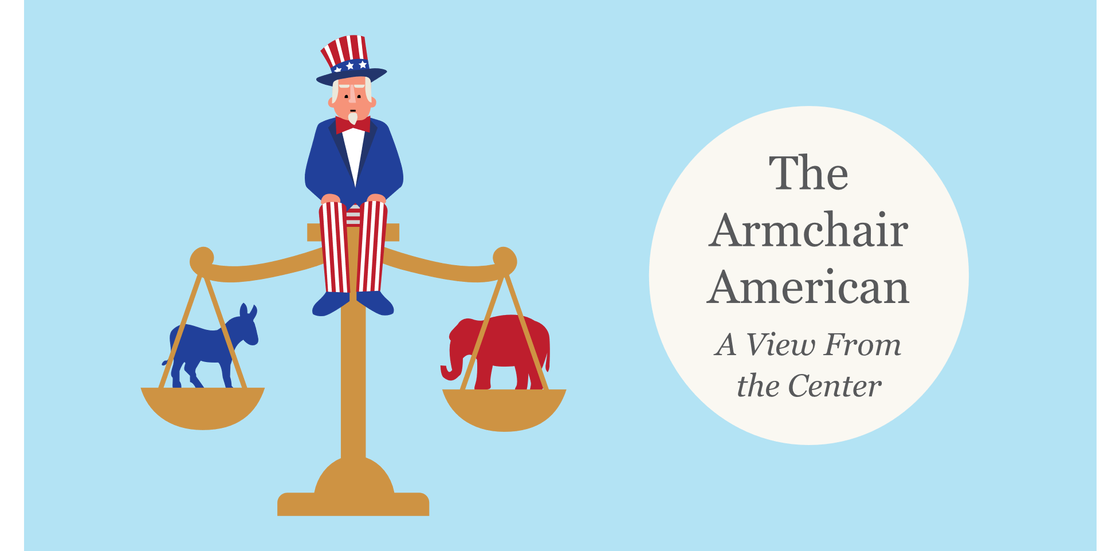
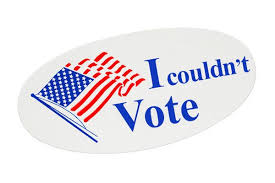
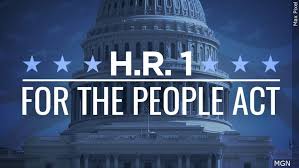
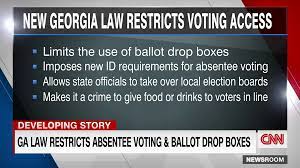
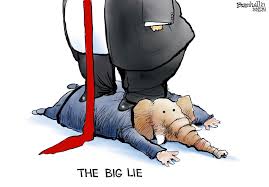



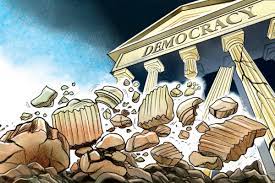


 RSS Feed
RSS Feed